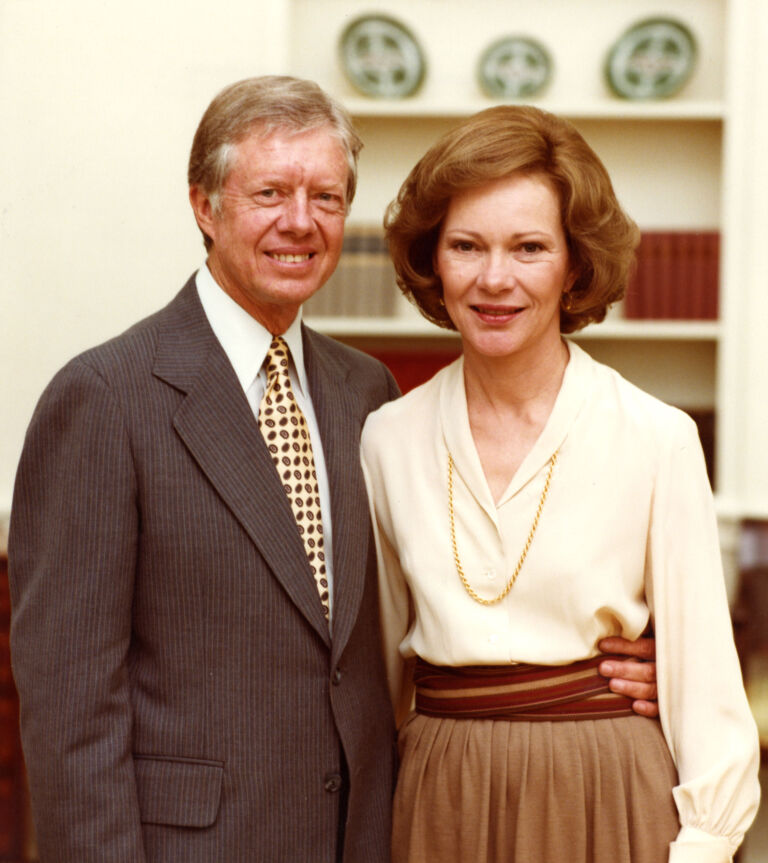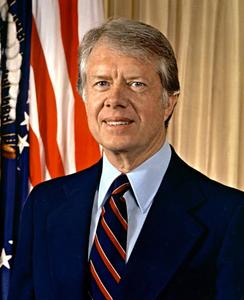
James Earl Carter Jr. was an American politician and humanitarian who served as the 39th president of the United States from 1977 to 1981. A member of the Democratic Party, Carter served from 1963 to 1967 in the Georgia State Senate and from 1971 to 1975 as the 76th governor of Georgia. He was the longest-lived president in U.S. history and the first to live to 100.
Carter grew up in Plains, Georgia, graduated from the United States Naval Academy in 1946, and joined the United States Navy’s submarine service. He married Rosalynn Smith, and together they worked closely throughout their lives. After completing his military service, Carter returned home and revitalized his family’s peanut-growing business. He opposed racial segregation, supported the civil rights movement, and became an activist within the Democratic Party. Carter served in the Georgia State Senate, became governor of Georgia, and ran for president in 1976. Despite being a relatively unknown dark horse candidate outside Georgia, he secured the Democratic nomination and chose Walter Mondale as his running mate. They narrowly defeated the Republican ticket of President Gerald Ford and Senator Bob Dole.
On his second day as president, Carter pardoned all Vietnam War draft evaders. He implemented a national energy policy emphasizing conservation, price control, and new technology. Carter successfully brokered the Camp David Accords, signed the Panama Canal Treaties, and advanced the second round of Strategic Arms Limitation Talks. He also tackled stagflation and signed bills creating the United States Departments of Energy and Education. The final two years of his presidency saw significant challenges, including the Iran hostage crisis, an energy crisis caused by the Iranian Revolution, the Three Mile Island accident, the establishment of diplomatic relations with China, the Nicaraguan Revolution, and the Soviet invasion of Afghanistan. In response to the invasion, Carter ended détente, imposed a grain embargo on the Soviets, articulated the Carter Doctrine, and led a multinational boycott of the 1980 Summer Olympics in Moscow. After defeating Senator Ted Kennedy in the Democratic primaries, Carter and Mondale sought re-election in 1980 but lost by a landslide to Ronald Reagan and George H. W. Bush.
After leaving the presidency, Carter established the Carter Center to promote and expand human rights, earning him the Nobel Peace Prize in 2002 for his related work. He traveled extensively to mediate peace negotiations, monitor elections, and combat infectious diseases. Carter played a key role in Habitat for Humanity and authored numerous books, including political memoirs, poetry, and works on the Israeli Palestinian conflict. While historians and political scientists rank Carter’s presidency as below-average, they generally regard his post-presidency—the longest in U.S. history—more positively.
